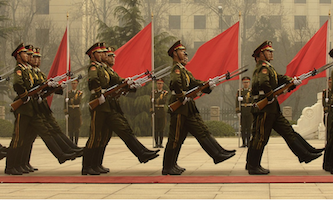Afghanistan and Pakistan Clash Over Border Fence
By Sudha Ramachandran
December 19, 2018, the CACI Analyst
On October 15, Afghan and Pakistani security forces exchanged fire. Such incidents, which have claimed the lives of hundreds of border security personnel and others on both sides, have grown in frequency in recent years. The clashes are over Pakistan’s unilateral construction of a fence along the Durand Line. Pakistan says the fence will check armed militants moving between the two countries. Afghanistan, which has not accepted the Durand Line as its border with Pakistan, disagrees. The controversial fence is adding tension to an already fraught bilateral relationship.
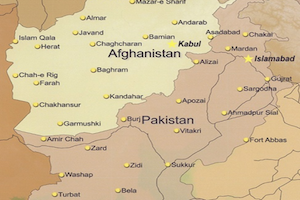
Afghanistan-Iran Trade Corridors to Bear Fruit for Both India and China
By Tristan Kenderdine
July 17, 2018, the CACI Analyst
A strategic deployment of trade corridors is taking shape across Afghanistan and Iran as both India and China subvert each other’s trade strategies through key geoeconomic states. Afghanistan’s land corridor to Chabahar port connects it to India by sea, creating a Persian-Gulf to Caspian Sea corridor, while the Afghan air corridor to India provides a parallel, more direct trade route. By contrast, China’s twin economic corridors in the region run perpendicular: north-south through Pakistan to the Gulf, and east-west through Iran to Istanbul. Pakistan’s Gwadar and Iran’s Chabahar are thus effectively in the same geopolitical node, connecting very different Great Game trade strategies.
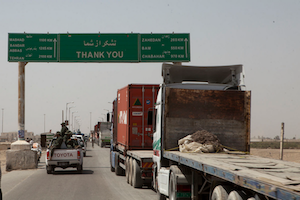
Taliban Resumption of Fighting Should Not Bury Afghanistan's Peace Process
By Sudha Ramachandran
June 26, 2018, the CACI Analyst
A day after Taliban fighters stunned the world with photographs of themselves embracing and celebrating Eid with personnel of the Afghan security forces, the Taliban leadership announced its decision not to extend the ceasefire. This dashed the hopes of millions of Afghans who were looking forward to a respite from the war. While the Taliban’s refusal to extend the ceasefire is disappointing, it is not the end of the road for the peace process. In recent months, Afghanistan has witnessed powerful demonstrations calling on the government and the Taliban to end the fighting. President Ashraf Ghani must draw on these peace constituencies to keep the peace process alive.
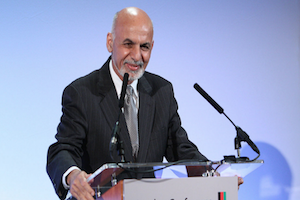
The Tashkent Conference on Afghanistan: Too Much Diplomacy, Too Little Solution
By Farkhod Tolipov
May 29, 2018, the CACI Analyst
On March 26-27, 2018, the unprecedented international conference on Afghanistan, “Peace process, security cooperation and regional interactions,” took place in Uzbekistan’s capital Tashkent. Diplomatic representatives of 21 states, the UN and the EU participated in the conference and signed its final Tashkent Declaration. The event signaled a transformation of Tashkent’s previous positions on Afghanistan, from past initiatives in the form of narrow formula-like approaches to a system-oriented strategy. However, the Tashkent Declaration and speeches given at the conference reveal that the approach contains too much diplomacy and too little solution, especially given the growing terrorism threat in the country.
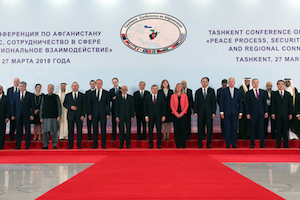
A Chinese Base in Central Asia
By Stephen Blank
April 12, 2018, the CACI Analyst
During January and February, several reports surfaced of a new Chinese military base in Afghanistan’s Wakhan corridor. According to Afghan officials, China and Kabul discuss building a base in Badakhshan and China will send an expert delegation to Kabul to determine the exact site, and will fund the base and all of its material and technical expenses, including weapons and equipment. China has denied these reports as they contradict its long-standing position that it is not seeking foreign bases or intends to intervene militarily in Central Asia. However, witnesses have reported seeing Chinese and Afghan troops on joint patrols. Moreover, there is a long record of signs of a growing Chinese military interest in Central Asia.
